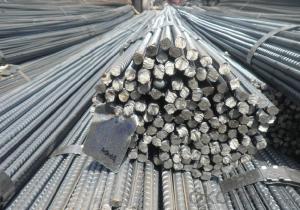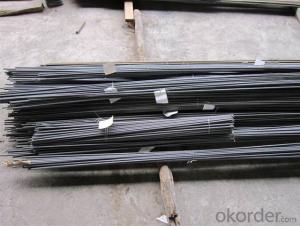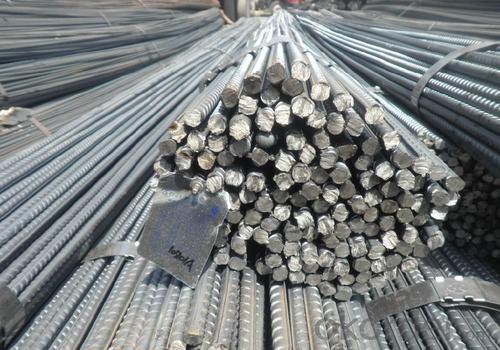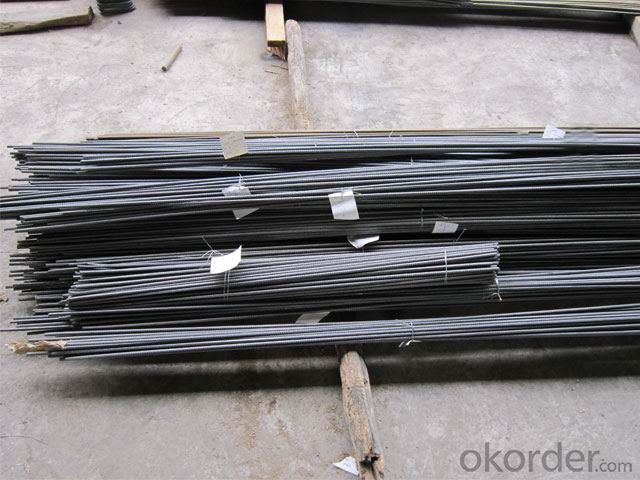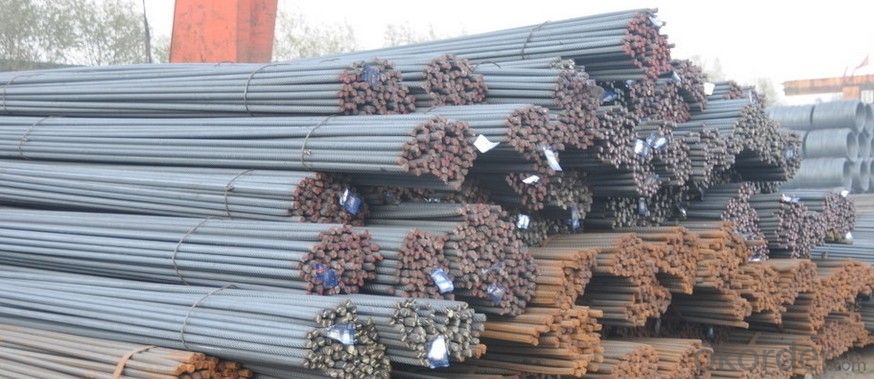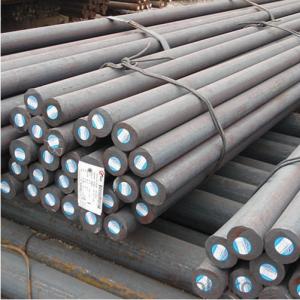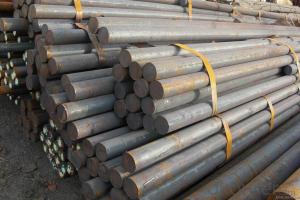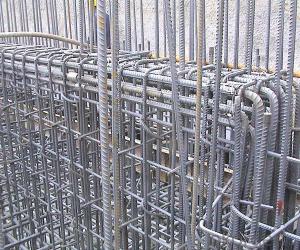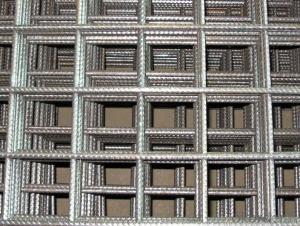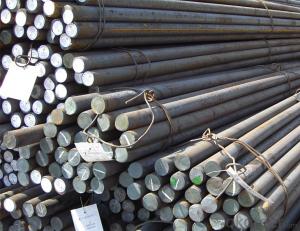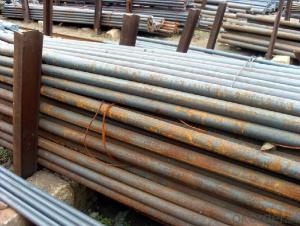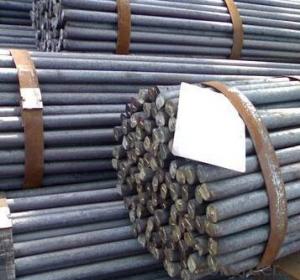Q235 Deformed Bar Steel Rebar Reinforcing Steel Bar
- Loading Port:
- Tianjin
- Payment Terms:
- TT OR LC
- Min Order Qty:
- 25 m.t.
- Supply Capability:
- 50000 m.t./month
OKorder Service Pledge
OKorder Financial Service
You Might Also Like
Specification
Q235 Deformed Bar Steel Rebar Reinforcing Steel Bar
Product Description:
1. Length: 6m-12m as standard.
2. Reputation: first, best competitive price, high quality, quotes price promptly and confirm the delivery on time!
3. Application : Used for civil engineering construction,like housing bridges roads and railway,ect.
4. Price: Keep lower operating costs so as to offer competitive price for our clients.
5. Minimum Order Quantity: 25MTS as per size.
6. Invoicing: Actual or Theoretical Weight Basis as buyer’s request.
7. Payment terms: TT payment in advance or irrevocable LC at sight.
8. Delivery time: 25-30 days after we receive your TT payment at sight.
Specifications:
Specifications | Round bar | Diameter: 4mm~800mm |
Angle bar | Size: 3mm*20mm*20mm~12mm*800mm*800mm | |
Square bar | Size: 4mm*4mm~100mm*100mm | |
Flat bar | Thickness: 2mm~100mm | |
Width:10mm~500mm | ||
Hexagonal | Size: 4mm~800mm | |
Length | 2m,4m,5.8m,6m,11.8m,12m or as required. | |
Advantage:
1.low price
2.high quality
3.big supplier in china
Application:
Applies to chemical industry, shipping industry, manufacturing industry,construction,decorate Industry,electric power,pump shafts, anitary wares,furniture handles,boiler,high temperature resistant,low temperature resistant, corrosion resistant.
Product Show:
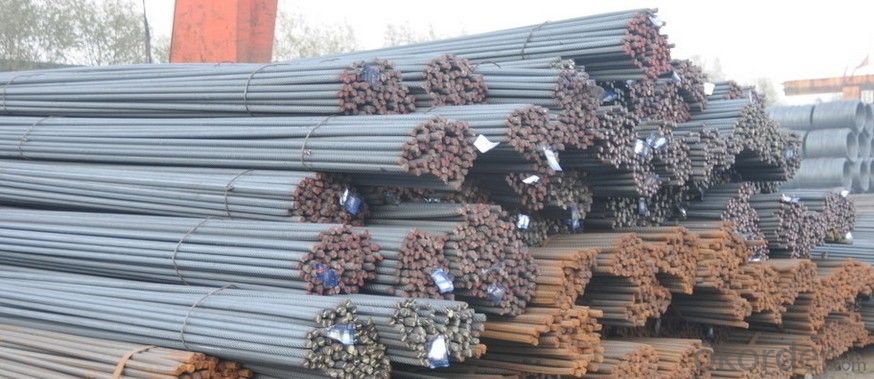
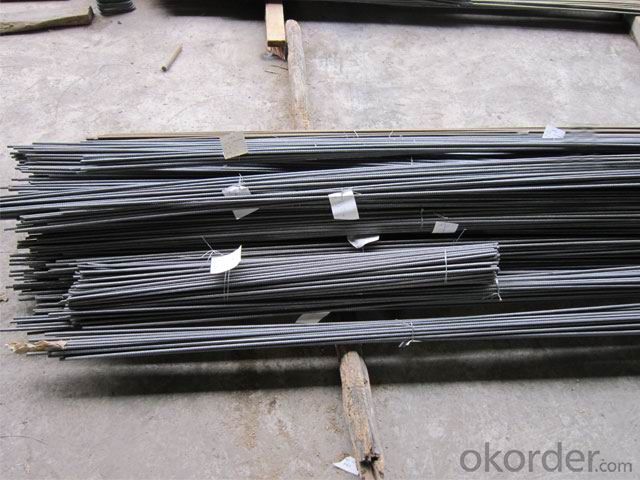
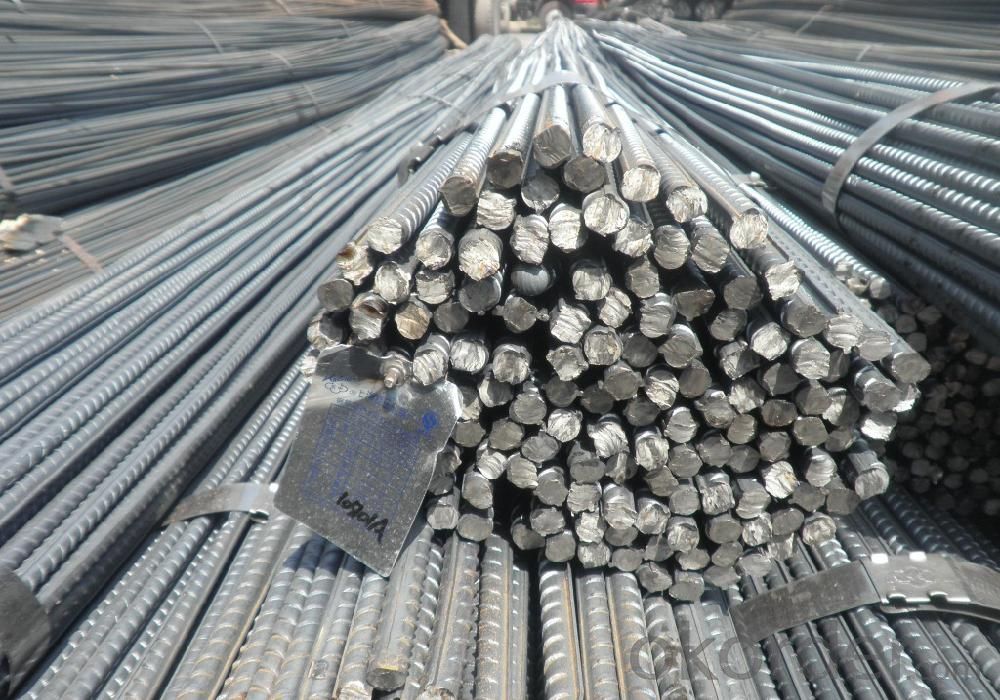
- Q: What are the different peening techniques used for special steel?
- There are several peening techniques used for special steel, including shot peening, ultrasonic peening, laser peening, and cavitation peening. Each technique involves using different methods and tools to introduce controlled compressive stresses into the material's surface, improving its mechanical properties and resistance to fatigue, stress corrosion, and other forms of degradation.
- Q: What is the life cycle of special steel products?
- The life cycle of special steel products typically involves several stages, including raw material extraction, steel production, manufacturing of specialized products, distribution, usage, and eventual disposal or recycling. This cycle starts with the extraction of iron ore and other raw materials, which are then processed and transformed into steel through various methods such as smelting and casting. Once the steel is produced, it is shaped and formed into specialized products through forging, rolling, or machining processes. These products are then distributed to various industries, where they are used for applications such as construction, automotive, aerospace, and energy. Throughout their usage, special steel products may undergo maintenance, repairs, or modifications. Eventually, when they reach the end of their life, these products can be recycled or disposed of in an environmentally responsible manner to minimize waste and resource consumption.
- Q: What is the impact of grain size on the mechanical properties of special steel?
- The impact of grain size on the mechanical properties of special steel is significant. Grain size refers to the size and distribution of individual crystals within the steel structure. It is determined by factors such as the cooling rate during solidification and subsequent heat treatments. In general, a smaller grain size in special steel leads to improved mechanical properties. This is because smaller grains offer a greater number of grain boundaries, which act as barriers to dislocation movement and improve the strength of the steel. Smaller grains also provide a more uniform microstructure, enhancing the overall toughness and resistance to fracture. Additionally, a smaller grain size promotes higher hardness and increased wear resistance in special steel. This is due to the increased number of grain boundaries that hinder the movement of dislocations, preventing plastic deformation and leading to higher hardness values. On the other hand, larger grain sizes can negatively impact the mechanical properties of special steel. Larger grains have fewer grain boundaries, allowing dislocations to move more freely. This results in reduced strength, toughness, and hardness of the steel. Furthermore, larger grains can also lead to anisotropic behavior, where the mechanical properties differ in different crystallographic directions, making the steel more susceptible to failure under certain loading conditions. Therefore, controlling and optimizing the grain size in special steel is crucial to achieve desired mechanical properties. This can be achieved through precise heat treatments, such as annealing or quenching, which control the cooling rate and subsequent recrystallization processes. By controlling the grain size, special steel can be tailored to meet specific application requirements, ensuring optimal mechanical performance and reliability.
- Q: What are the properties of martensitic steel?
- Martensitic steel is a type of stainless steel known for its high strength, hardness, and resistance to corrosion. It is characterized by a unique microstructure, formed through rapid cooling or quenching from high temperatures, which results in a hard, brittle material. Martensitic steel typically exhibits excellent wear resistance, making it suitable for applications such as cutlery, knives, and industrial tools. However, it may have reduced toughness and lower ductility compared to other stainless steel types.
- Q: What are the different joining processes for special steel?
- There are several different joining processes for special steel, including welding, brazing, soldering, and adhesive bonding. Welding involves melting and fusing the steel parts together, often using heat and pressure. Brazing and soldering involve using a filler metal with a lower melting point to join the steel parts. Adhesive bonding involves using a strong adhesive to bond the steel parts together. Each joining process has its own advantages and limitations, and the choice of process depends on factors such as the specific steel alloy, the strength requirements, and the application of the joined parts.
- Q: What are the specific requirements for special steel used in nuclear applications?
- Special steel used in nuclear applications has specific requirements to ensure its suitability and safety within the highly demanding and sensitive nuclear environment. These requirements are designed to guarantee the integrity and performance of the steel in various conditions, including extreme temperatures, radiation exposure, and corrosive environments. One of the primary requirements for special steel used in nuclear applications is high strength and toughness. The steel must possess excellent mechanical properties to withstand the immense pressure and stress that it will experience during operation. This enables the steel to resist deformation, cracking, and failure, ensuring the structural integrity of nuclear components. Another crucial requirement is the ability to withstand high temperatures and thermal cycling. Nuclear reactors operate at elevated temperatures, and the steel must retain its mechanical properties even under extreme thermal conditions. This prevents any degradation or loss of strength that could compromise the safety and efficiency of the nuclear system. Furthermore, special steel used in nuclear applications must exhibit exceptional resistance to corrosion and oxidation. The nuclear environment can be highly corrosive due to the presence of various chemicals and coolants, such as water, steam, and coolant gases. The steel must possess a high level of corrosion resistance to prevent any degradation or material loss, which could lead to leaks or failures. Radiation resistance is also a critical requirement for special steel used in nuclear applications. Nuclear reactors emit ionizing radiation, which can damage the structure and properties of conventional materials. Therefore, the steel must have a high resistance to radiation-induced embrittlement and degradation, ensuring its long-term performance in a radioactive environment. Additionally, the steel used in nuclear applications must comply with strict quality control and certification standards. These standards ensure the steel's traceability, material composition, and manufacturing processes, guaranteeing its reliability and compliance with regulatory requirements. Quality control measures include non-destructive testing, ultrasonic examinations, and material certification. Overall, the specific requirements for special steel used in nuclear applications encompass high strength, toughness, thermal stability, corrosion resistance, radiation resistance, and adherence to stringent quality control standards. Meeting these requirements is crucial to ensure the safe and reliable operation of nuclear systems while mitigating potential risks associated with the nuclear environment.
- Q: How does special steel contribute to the automotive aftermarket?
- The automotive aftermarket greatly benefits from the inclusion of special steel, as it aids in the advancement and enhancement of various automotive components. This top-notch steel is engineered specifically to possess remarkable strength, endurance, and resistance against wear and tear. One of the primary manners in which special steel contributes to the automotive aftermarket is through the production of performance parts. These parts are crafted to enhance the efficiency and performance of vehicles, catering to the desires and preferences of car enthusiasts. For instance, special steel is utilized in the production of exhaust systems, turbochargers, and intake manifolds, enabling an increase in horsepower and torque, as well as improved fuel efficiency. Furthermore, the production of suspension components, such as coil springs and sway bars, benefits from the usage of special steel. These components provide superior handling and stability, elevating the driving experience and ensuring the safety of both the vehicle and its occupants. Moreover, special steel is essential in the manufacturing of braking systems, encompassing rotors and brake calipers. These components are essential in achieving effective braking and maintaining control of the vehicle. By incorporating special steel, aftermarket brake systems can offer enhanced stopping power, reduced fade, and increased resistance to high temperatures. Additionally, special steel finds application in the production of engine components, including crankshafts, connecting rods, and valve springs. These components endure extreme forces and temperatures, and the exceptional strength and heat resistance of special steel enable them to withstand such conditions, resulting in improved engine performance and longevity. In conclusion, special steel significantly contributes to the automotive aftermarket by aiding in the development of high-performance parts, suspension components, braking systems, and engine components. Its outstanding strength, endurance, and resistance to wear and tear guarantee improved vehicle performance, efficiency, and overall driving experience.
- Q: How does special steel contribute to the electrical resistance of products?
- Special steel can contribute to the electrical resistance of products by providing a higher resistance to the flow of electric current. This is achieved by alloying the steel with specific elements that increase its resistivity, making it suitable for applications where low electrical conductivity is desired.
- Q: What are the common challenges in forging special steel?
- In order to achieve desired outcomes, manufacturers and engineers must tackle several common challenges when forging special steel. One of these challenges involves maintaining precise temperature control throughout the forging process. Special steels often have specific heat treatment requirements, and any deviation from the recommended temperature range can have a negative impact on the final properties of the material. Therefore, it is crucial to achieve and sustain the appropriate temperature to ensure desired mechanical properties such as strength, hardness, and toughness. Another challenge is controlling the cooling rate during quenching. Quenching is a critical step in the heat treatment process that helps to achieve the desired hardness and strength in special steels. However, rapid cooling can lead to the formation of undesired microstructures or even cracking. Therefore, it is essential to carefully manage the cooling rate to avoid these issues and ensure optimal material properties. Additionally, shaping special steels through forging can be challenging due to their high strength and hardness. These materials are often more difficult to deform compared to regular steels, requiring higher forging pressures and specialized equipment. The resistance to deformation can result in increased wear on the forging dies, necessitating frequent maintenance and replacement. Furthermore, special steels may contain alloying elements that can affect their forgeability. Some alloying elements can promote grain growth, which can reduce the mechanical properties of the material. It is crucial to find the right balance of alloying elements and optimize the forging process parameters to achieve the desired microstructure and properties in the final product. Lastly, ensuring consistency and repeatability in the forging process can be challenging. Special steels are often produced in smaller quantities or for specific applications, making it important to maintain process control and quality assurance. Proper documentation, monitoring, and quality control measures need to be implemented to ensure that the forged special steel meets the desired specifications and performance requirements. Overall, addressing these challenges through proper process control and optimization is essential to obtain high-quality special steel products with the desired mechanical properties and performance characteristics.
- Q: What are the applications of special steel in the manufacturing supply chain?
- Special steel has a wide range of applications in the manufacturing supply chain. It is commonly used in industries such as automotive, aerospace, construction, and energy. Special steel's high strength, durability, and corrosion resistance make it ideal for manufacturing critical components, such as engine parts, bearings, gears, and structural elements. Additionally, its ability to withstand high temperatures and extreme conditions allows for its use in manufacturing tools, molds, and dies. Overall, special steel plays a vital role in enhancing the performance, reliability, and efficiency of various manufacturing processes and products.
Send your message to us
Q235 Deformed Bar Steel Rebar Reinforcing Steel Bar
- Loading Port:
- Tianjin
- Payment Terms:
- TT OR LC
- Min Order Qty:
- 25 m.t.
- Supply Capability:
- 50000 m.t./month
OKorder Service Pledge
OKorder Financial Service
Similar products
Hot products
Hot Searches
Related keywords
